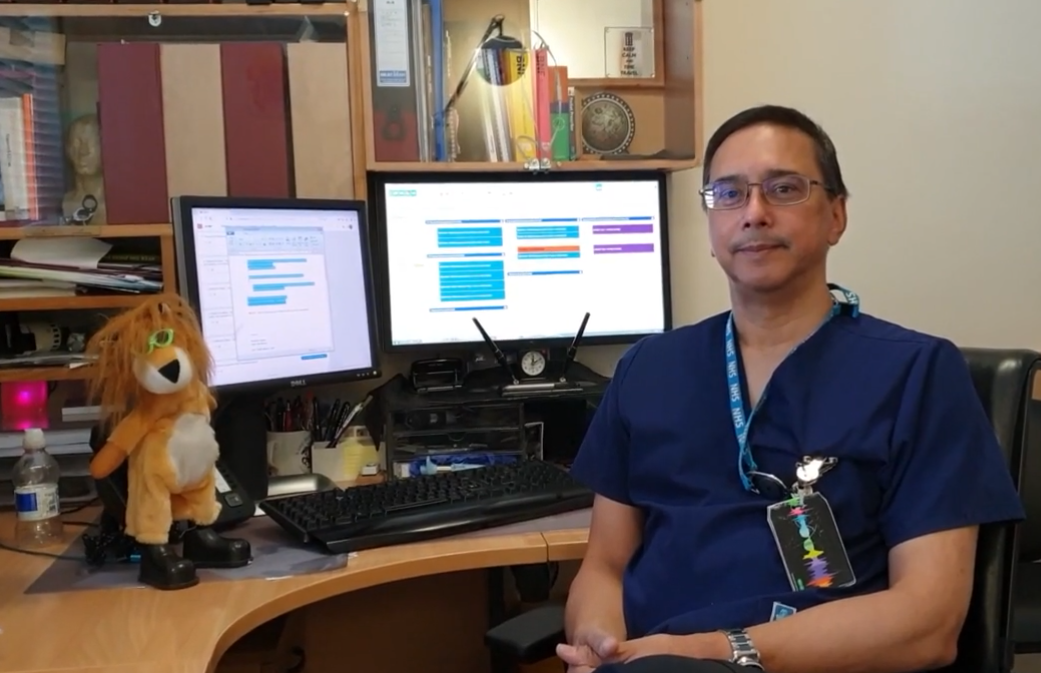"The book is there to bring some joy to learning and hopefully help students to get through a difficult time - that is really the main purpose. "
 Class of 1992 alumnus, Dr Khalid Khan, wrote ‘Mnemonics and Study Tips for Medical Students’ in 2016 to help prepare students for upcoming exams in a way that is fun and engaging. He spoke to us about how his interest in mnemonics (a tool to help remember certain facts or large amounts of information) spans back to his time at St George’s, and how the inspiration for his book came to him during his time as a student here.
Class of 1992 alumnus, Dr Khalid Khan, wrote ‘Mnemonics and Study Tips for Medical Students’ in 2016 to help prepare students for upcoming exams in a way that is fun and engaging. He spoke to us about how his interest in mnemonics (a tool to help remember certain facts or large amounts of information) spans back to his time at St George’s, and how the inspiration for his book came to him during his time as a student here.
Reflecting on his time as a student, Dr Khan says, “I remember seeing how stressed my classmates were in the days before their big exams, and I have always had an interest in mnemonics and study techniques – I used them myself to help revise. To my surprise, I found that many students didn’t know much about this area. Some actually thought mnemonics ('pneumonics’) were to do with lung disease!”
The idea to create a study guide first came about in the summer of 1990, during his time as Secretary for the Students’ Union. He explains, “At the time , I struggled to find books on sale that exclusively dealt with the topic of study tips and mnemonics for UK medical students. When our Student Union newsletter editors told us they were too busy to produce our newsletter one term (because of exams, of course!) I stepped in and brought up the idea of a study booklet as an alternative to the newsletter, which I called ‘Mnemonics 1’.”
The Student Union distributed the booklet, and Dr Khan was delighted with the positive response from fellow students. He says, “Within 15 minutes of leaving copies in the library, the first print run was collected, and students were stopping me in corridors asking when more copies would be available. Copies were even smuggled to other medical schools!”
The booklet became so popular that Dr Khan wrote four additional editions by hand before hundreds of free copies were made and distributed. A petition was even signed by hundreds of students asking the Student Union to keep the project going. Reflecting on the popularity of these original booklets, Dr Khan says, “I always felt this project was more about making learning fun and engaging and not just about silly anagrams (although there are some of those). It was meant to act like an inspirational friend that you can keep in your rucksack to flick through a night or two before an exam. I wanted the book to say to students: ‘We've been here before, give it your best shot. You are not alone in this.’ The book is there to bring some joy to learning and hopefully help students to get through a difficult time - that is really the main purpose.
“Many students, particularly my friend and old classmate, Dushyant Mital, told me it really needed to be available as an actual book, so I innocently approached some publishers to put this in motion. For years, I was told that this book was not a standard textbook for any subject. It was not a comprehensive textbook of Medicine and nobody else produced anything similar, so publishers didn’t see why they would want to publish it. However, finally, Hodder Arnold (now CRC Press) made the decision to publish the book.”
“A year later, Waterstones and Foyle’s bookshops had a shelf labelled ‘Mnemonics’ in the medical section where before there was not even a single book. The other publishers who had rejected the idea were now printing a whole new wave of books in this genre... And they still do! It’s wonderful to know that are now so many fun, revision-related books out there for students.”
Dr Khan is now considering publishing a fourth edition of the book and adds: “Whilst mnemonics may help, fun and interest help so much more. In this era of internet and Google resources, during gloomy times when the dreaded exams are beckoning, many students still like to have a physical book in hand to help bring hope, warmth and fun to their learning. "